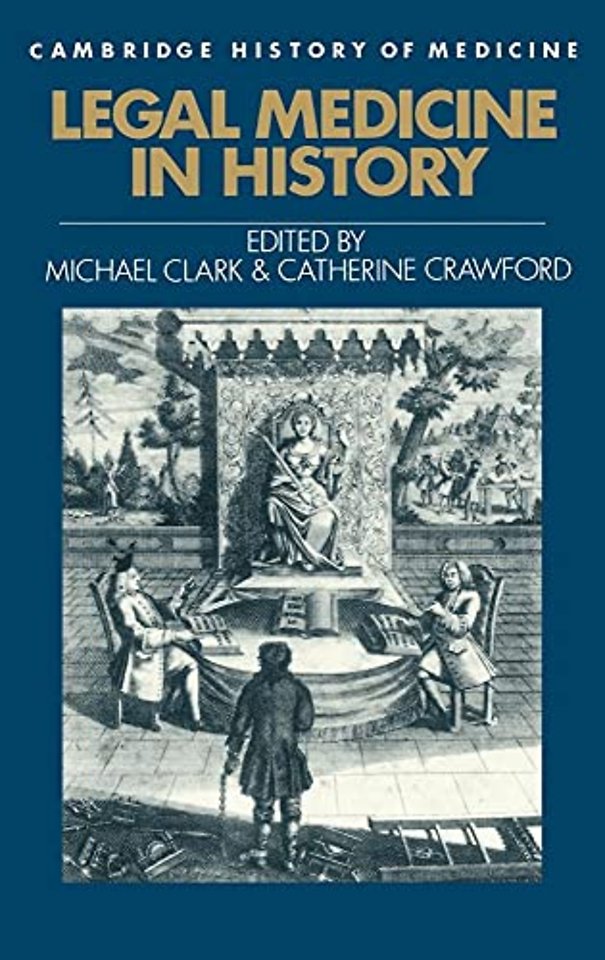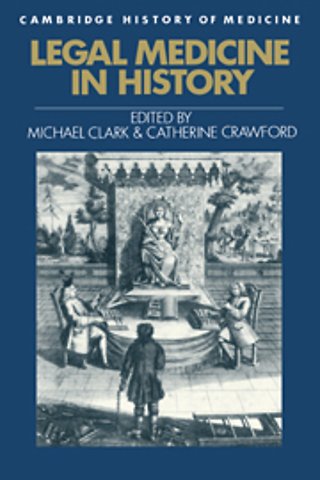Notes on contributors; Preface; Introduction Michael Clark and Catherine Crawford; Part I. Early Modern Practice: 1. Forensic medicine in early colonial Maryland, 1633–83 Helen Brock and Catherine Crawford; 2. The scope of legal medicine in Lancashire and Cheshire, 1660–1760 David Harley; 3. Suspicious infant deaths: the statute of 1624 and medical evidence at coroners' inquests Mark Jackson; Part II. The Growth of a Science: 4. Legalizing medicine: early modern legal systems and the growth of medico-legal knowledge Catherine Crawford; 5. Infanticide trials and forensic medicine: Württemberg, 1757–93 Mary Nagle Wessling; 6. Training medical policemen: forensic medicine and public health in nineteenth-century Scotland Brenda White; Part III. Special Offenders: 7. 'I answer as a physician': opinion as fact in pre-McNaughtan insanity trials Joel Peter Eigen; 8. Understanding the terrorist: anarchism, medicine and politics in fin-de-siècle France Ruth Harris; 9. Malingerers, the 'weakminded' criminal and the 'moral imbecile': how the English prison medical officer became an expert in mental deficiency, 1880–1930 Stephen Watson; Part IV. The Politics of Post-Mortems: 10. The magistrate of the poor? Coroners and deaths in custody in nineteenth-century England Joe Sim and Tony Ward; 11. Coroners, corruption and the politics of death: forensic pathology in the United States Julie Johnson; Part V. Medical Authority in Question: 12. Unbuilt Bloomsbury: medico-legal institutes and forensic science laboratories in England between the wars Norman Ambage and Michael Clark; 13. Rex v. Bourne and the medicalization of abortion Barbara Brookes and Paul Roth; Index.

